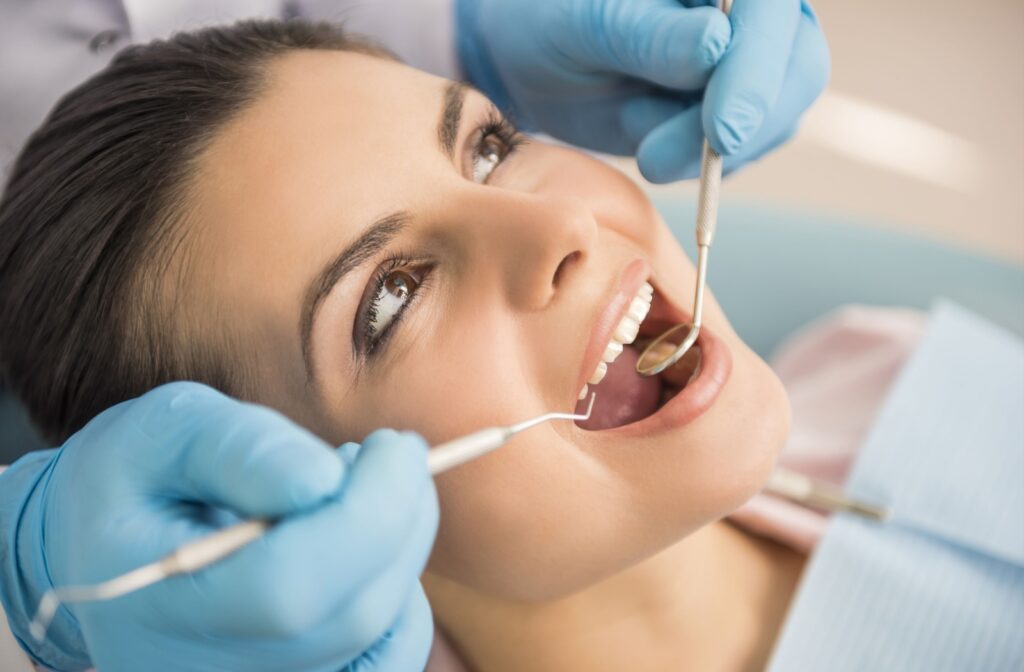With our fast-paced lifestyles and dietary choices, it’s no wonder that more and more people experience cracked teeth. But here’s the good news: knowing how to identify and address a cracked tooth early can save you a lot of discomfort and even prevent more serious dental issues down the road.
For your comfort, you may try methods at home to temporarily bring relief while you wait for your next dental appointment. However, although home remedies may exist, only a dentist can address the underlying issues and safely fix cracked teeth. After examining your mouth, your dentist can provide tailored advice on treatment. Depending on the severity of the crack, treatments can range from dental bonding, dental crown, root canal, or extraction.
Understanding Cracked Teeth
A cracked tooth is a fracture in the tooth’s enamel or dentin. These cracks can vary in size, from tiny surface fissures to more severe splits that reach deep into the tooth.
There are several causes of cracked teeth.
Crowded and crooked teeth constantly press against each other, accelerating wear and tear and eventually causing cracks. Large silver or amalgam fillings can also create excessive stress, leading to cracks over time.
Cracks can also result from biting down on hard foods, such as candy or ice, but they can also occur due to accidents or injuries. Grinding your teeth at night is another common culprit that wears down the enamel over time, making it easier for cracks to form.
Signs & Symptoms
Recognizing the signs of a cracked tooth early on is essential for effective treatment. One of the most common indicators is increased sensitivity, especially to hot and cold temperatures. You might notice an uncomfortable twinge when sipping your favourite iced coffee or enjoying a steaming bowl of soup.
Another telltale sign is pain when chewing. If you experience discomfort when biting down on food or release pressure while chewing, it’s essential to have your tooth evaluated by a dentist. This erratic pain can vary in intensity and may come and go, making it difficult to pinpoint the exact source.
Sometimes, a cracked tooth may not show visible signs, making it challenging to identify. But if you notice unexplained pain or sensitivity in a specific area of your mouth, don’t ignore it. Early detection can prevent further damage and save you from potential complications.
Preventative Measures
Prevention is always better than cure, and there are several steps you can take to minimize the risk of cracked teeth.
- Consider mouthguards. Wearing a mouthguard while playing sports or at night if you grind your teeth is an excellent preventive measure. These guards provide a protective barrier and cushion, reducing the impact on your teeth.
- Avoid hard foods and objects. Avoid chewing on hard objects like ice or pens. You should also be cautious when consuming sticky or chewy foods that can tug on dental work and lead to cracks.
- Maintain good oral hygiene. Practicing good oral hygiene is essential for preventing cracked teeth. Regular brushing and flossing can help keep your mouth and teeth healthy and strong.
- Schedule regular dental exams and cleanings. Routine visits to your dentist help keep your teeth strong and healthy. Your dentist can also detect early signs of wear and tear and offer advice on maintaining your oral health effectively.
Professional Treatments
Professional intervention is typically necessary to treat a cracked tooth. Depending on the severity of the crack, your dentist may suggest various treatments. Dental bonding is a common solution for minor cracks. The dentist applies a tooth-coloured resin to the damaged area, restoring the tooth’s appearance and function.
Dental crowns are often recommended for more extensive cracks. These custom-made caps fit over the entire tooth, providing protection and stability. Crowns are durable and can last for many years with proper care.
In severe cases where the crack has reached the tooth’s pulp, a root canal may be necessary to remove the damaged tissue. This treatment helps save the tooth and prevents infection. If the damage is too significant to repair, tooth extraction may be the only option.
What Can I Do At Home For Relief?
The first thing you should do is book your appointment with the dentist.
No home remedy can substitute for professional care. However, you can help manage pain and discomfort with cold compresses or over-the-counter pain relievers while you wait for your appointment.
Book an Appointment with Your Dentist
While you can rest easy that dentists can help fix cracked teeth, prevention is better than treatment. Good oral hygiene practices, wearing mouthguards, and avoiding hard foods are all effective ways to protect your teeth.Regular dental check-ups are essential for maintaining healthy teeth and identifying issues early on. If you suspect cracked teeth or experience unexplained tooth pain, call our team at Genesis Dental to book an appointment. One of our experienced dentists can examine your mouth and offer tailored treatment advice.




